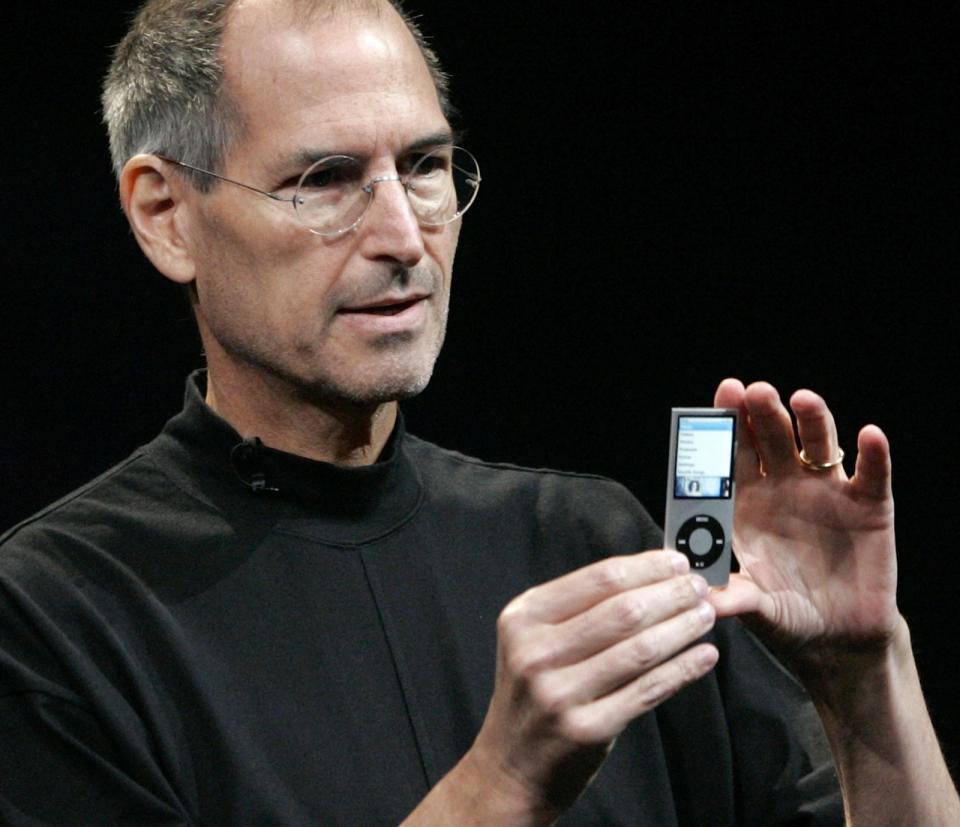Apple's challenge isn't predicting the future — but creating it

Apple is the biggest, most profitable company in America.
But with the ho-hum launch of iPhone 7 and the seeming failure of Apple Watch — combined with Apple’s insistence that it is now a services company — the company is clearly approaching a crossroads. The profits are rolling now — Wall Street analysts expect the company to earn something in the neighborhood of $9 billion this quarter — but it is the future that has suddenly become unclear for the dominant smartphone maker.
Prioritize the user
In a great note to clients out on Tuesday, Steve Milunovich and the team at UBS break down the challenges facing Apple by examining the company’s relationship “Jobs Theory” (no, not Steve Jobs) and how to solve for a scarcity identified in the market.
“Jobs Theory prioritizes the user experience over product attributes,” Milunovich writes. “Successfully serving a consumer’s complete need and creating internal processes and measurements supporting jobs thinking is almost impossible for competitors to copy.”
From a corporate, top-down level, this means you don’t pick goals for the company to meet, but rather marketplace gaps to fill. “The philosophy of building around the job to be done similarly implies that management need understand specifically what the consumer wants to accomplish: quarter-inch holes, not quarter-inch drills,” Milunovich writes.
And so for Apple, Milunovich’s line of thinking argues that rather than identifying a better way to provide an existing product — you could argue Apple Watch is the best smartwatch available, but are smartwatches really the next big consumer product? — Apple must apply “Jobs Theory” to an underserved area of the consumer experience.
Anticipate customer experiences that don’t yet exist
“We would argue that Apple’s long-term success depends on creating and delivering new personal technology experiences,” Milunovich writes. “The bar is high as Apple must go beyond understanding how customers currently use products to anticipate delightful experiences customers may not yet know they will value.”
That is, Apple must create the future it will succeed in, rather than try to anticipate the future by improving the present state of play.
Think of the iPod. It solved a present problem (portable CD players and existing MP3 devices were clunky and held too-few songs), while also creating a future consumer need people expected would be met by Apple. There is no iPhone without iPod before it.

And so possible areas for Apple to create a new consumer paradigm, Milunovich argues, could include security. He writes, “Apple’s position as a trusted brand and stance on data privacy could prove a competitive advantage if trust is part of the next scarcity and job to be done.” It is, of course, unclear if “better security” has the same brand-transforming potential as reinventing customers’ musical and social lives.
The more compelling new future for Apple could be a dominant position in what Milunovich calls “ambient” computing, or technology that is always on but relatively invisible.
“Here, Apple can’t just produce neat products but must solve jobs to be done needs, whether consumers know they need the job or not, ” Milunovich writes. “‘iOS everywhere’ is the slogan for this ubiquitous Apple presence. AI and the Internet assistant may play starring roles.”
Of course, if this all sounds a little bit out there, well, it probably should: you don’t create the next multi-billion business by thinking about things we all know are being demanded by consumers. Alternatively, companies might only get to create the greatest consumer product of their generation once!
Customer first
But looking beyond Milunovich’s narrow frame on the issues impacting Apple, what’s striking is how much a “Jobs Theory” approach to business more or less like a version of what we’ve heard recently from executives like Jamie Dimon, Jeff Bezos, and investor Warren Buffett: the customer is all that matters.
Bezos, the CEO of Amazon, said last week that the core of Amazon’s approach is being “customer obsessed” because unlike competitors, customers are “always dissatisfied” and this pushes you to do better.
Buffett has said that, “Any business that has delighted customers has a salesforce out there that you don’t have to pay. You don’t see them, but they are talking to people all the time.”
Serve your customer.
—
Myles Udland is a writer at Yahoo Finance.
Read more from Myles here:

 Yahoo Finance
Yahoo Finance 
